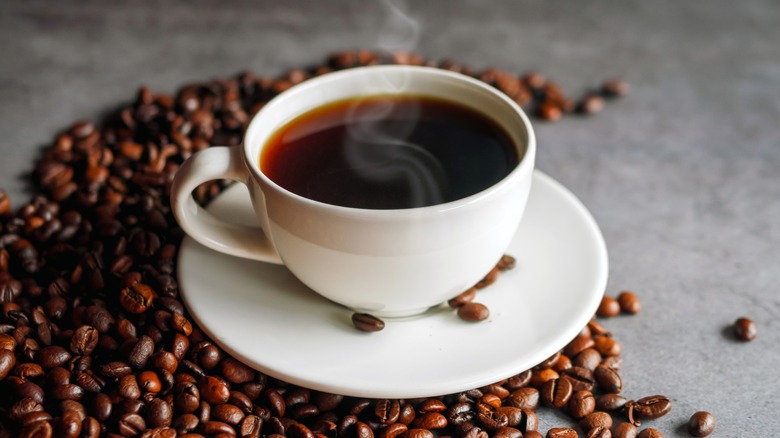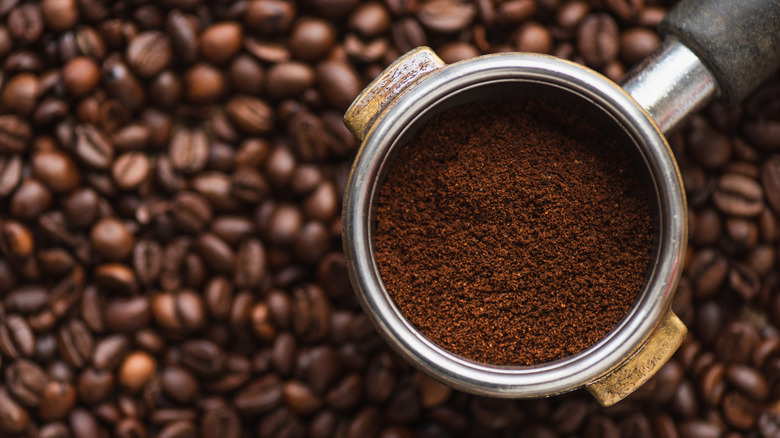The Key To Great Coffee At Home Is Precision
A beautifully made cup of coffee may look like an art form, but there are a number of technical processes that go into producing the best results. To find out how to replicate the kind of drink you find in coffee shops when brewing at home, Food Republic asked ex-barista Matt Woodburn-Simmonds of Home Coffee Expert for his professional advice. Essentially, it all comes down to one thing; he told us: "Incredible consistency."
"Cafés that make coffee well do so because of lots of boring things like precise measurements and consistency," the coffee expert explained. "There isn't really a 'trick' to making great coffee. It's more like science." Just as with scientific experiments, a lot of the best practices stem from trial and error. "Try a method, note [the] result, adjust one thing at a time, [and] repeat until perfection is achieved," Woodburn-Simmond advised. "Then you never change anything[,] and it'll always be great. It's a lot easier when you're making hundreds a day to nail this down[,] but it is the essence of brilliant coffee."
There are a number of variables that affect a cup of joe, from the freshness of the beans to how coarse the coffee grind is. But the good news is that you can actually control these variables. Once you've made the perfect coffee that suits your particular taste, so long as you've noted the precise details, you'll be able to recreate it every time.
Use fresh coffee beans and experiment with grind size
Coffee is a complex matter, and brewing it involves extracting roughly two thousand different compounds, which impact the overall drinking experience. The best techniques will vary according to how you're making your coffee. But there are certain things you can do every time to achieve the kind of consistency that ex-barista Matt Woodburn-Simmonds recommends, and this includes keeping the coffee itself in the best possible condition.
Coffee beans expire and can quickly lose their flavor, so you should store them away from light, air, and moisture. It's best to buy less and more frequently, but if you want them to stay aromatic and tasty for longer, keep them in an airtight container in the freezer. You can also grind them straight from the freezer.
The size of the grind is another key variable. Finely ground beans mean you'll get more of the organic compounds, oils, and even caffeine in your cup — but too fine, and you'll end up with over-extracted coffee with a bitter flavor. On the other hand, if it's too coarse, it can be under-extracted and taste weak. The grind size will also depend on the method — cold brew handles a coarser grind than espresso, for example — but the best way to find the taste you like is to experiment. For example, try adding water to coffee beans before grinding them to get a more professional result and a fuller flavor.


